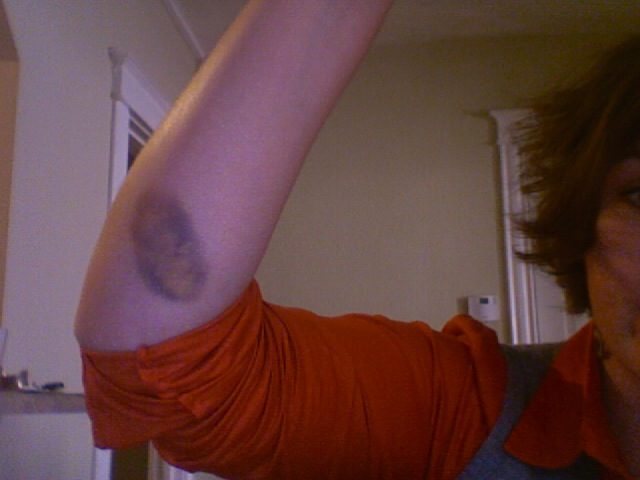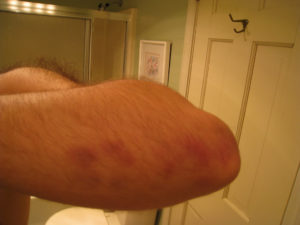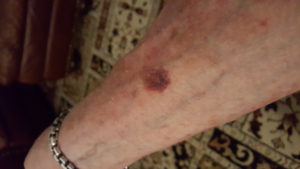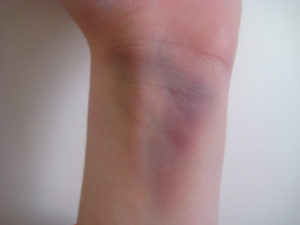

Yet another unsightly bruise. You don’t recall bumping into anything, but lately you seem to be bruising frequently. Is this cause for concern?
Easy bruising is common with age. Although most bruises are harmless and go away without treatment, easy bruising can sometimes be a sign of a more serious problem.
Why is easy bruising so common in older adults?
Most bruises form when small blood vessels (capillaries) near the skin’s surface are broken by the impact of a blow or injury — often on the arms or legs. When this happens, blood leaks out of the vessels and initially appears as a black-and-blue mark. Eventually your body reabsorbs the blood, and the mark disappears.
Generally, harder blows cause larger bruises. However, if you bruise easily, a minor bump — one you might not even notice — can result in a substantial bruise.
Some people — especially women — are more prone to bruising than others. As you get older, your skin also becomes thinner and loses some of the protective fatty layer that helps cushion your blood vessels from injury.

Aspirin, anticoagulant medications and anti-platelet agents reduce your blood’s ability to clot. Antibiotics might also be associated with clotting problems. As a result, bleeding from capillary damage might take longer than usual to stop — which allows enough blood to leak out to cause a bigger bruise.
Topical and systemic corticosteroids — which can be used to treat various conditions, including allergies, asthma and eczema — cause your skin to thin, making it easier to bruise. Certain dietary supplements, such as ginkgo, also can increase your bruising risk due to a blood-thinning effect.
If you experience increased bruising, don’t stop taking your medications. Talk to your doctor about your concerns. Also, make sure your doctor is aware of any supplements you’re taking — especially if you’re taking them while on a blood-thinning drug. Your doctor might recommend avoiding certain over-the-counter medications or supplements.
When does easy bruising indicate a more serious problem?
Easy bruising sometimes indicates a serious underlying condition, such as a blood-clotting problem or a blood disease. See your doctor if you:
- Have frequent, large bruises, especially if your bruises appear on your trunk, back or face, or seem to develop for no known reasons
- Have easy bruising and a history of significant bleeding, such as during a surgical procedure
- Suddenly begin bruising, especially if you recently started a new medication
- Have a family history of easy bruising or bleeding
These signs and symptoms can indicate:
- Low levels of the blood components that help it clot after injury (platelets)
- Abnormally functioning platelets
- Problems with proteins that help the blood clot
To find the cause of your bruising, your doctor might check your blood platelet levels or do tests that measure the time it takes your blood to clot.
Other serious causes of bruising include domestic violence or abuse. If a loved one has an unexplainable bruise, particularly in an unusual location such as on the face, be aware of the possibility of abuse.

How can I prevent or treat bruises?
To prevent minor bruising, take steps to avoid falling:
- Use good lighting in your home.
- Avoid clutter and throw rugs, especially on stairs.
- Arrange furniture and electrical cords so that they’re not in your way when you walk.
- Find out about the side effects of medications you take. Tell your doctor or pharmacist if a medication makes you dizzy or sleepy.
- Have your vision and hearing tested. Even small changes in sight or hearing can cause you to fall.
Unfortunately, once a bruise has formed, not much can be done to treat it. Most bruises eventually disappear as your body reabsorbs the blood, although healing might take longer as you age. It might help to elevate the affected area and apply ice.












